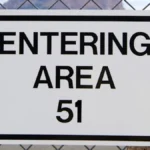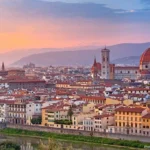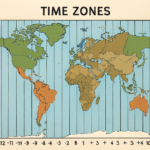
The capital city of the Netherlands (also known as Holland) is Amsterdam, which is located in the province of North Holland in the country’s western region. The city of Amsterdam was founded in the 12th century by fisherman who built a bridge across the Amstel River. The bridge also had wooden locks that served as a dam to protect the village from rising water during the seasons. As a result, the village was given the name Aemstelredamme, which later became Amsterdam. By the 17th century, Amsterdam had become one of the world’s most vibrant ports, known for diamonds and finance at the time. Today, Amsterdam is one of Europe’s most important financial centers, as well as a popular tourist destination.
Amsterdam was built on 11 million wooden poles, and some buildings are not as straight as they would be on land due to the swampy ground beneath the water. They have a lopsided shape.
The wooden poles are no longer used in construction. During the construction process, they were replaced with concrete.
Amsterdam is brimming with historical structures. The city has 6,800 buildings dating from the 16th to 18th centuries.
During WWII, starvation threatened the people of Amsterdam to the point where they began eating tulip bulbs to survive.
Amsterdam has the most nationalities (176) of any city in the world. It’s a very multicultural place.
Amsterdam was one of the original six founding members of the European Union.
On average, Amsterdam has the tallest people in the world.
The majority of the time, people in Amsterdam travel by bicycle. It is estimated that bicycles account for 60% of all inner-city transportation.
In comparison to many other major cities, Amsterdam has a low crime rate.
Amsterdam is known as the “Venice of the North” because it has nearly as many canals as Venice, Italy.
There are 872 more bridges in Amsterdam than in Venice, Italy.
Every year, a large number of people dump their old, worn-out bicycles in the canals. Only 8,000 of the estimated 25,000 that end up in the water are pulled from the bottom and properly discarded.
Every year, approximately 100,000 bicycles are stolen in Amsterdam.
On Amsterdam’s canals, there are approximately 2,500 houseboats or floating homes where people live permanently.
The city of Amsterdam has a population of 805,166 people, and the metropolitan area of Amsterdam has a population of 2.34 million.
Despite being built on water, Amsterdam has trams, metro, buses, taxis, and cars that travel its roads as well as tram and metro lines.
In Amsterdam, there are approximately 550 charging stations for electric vehicles.
Amsterdam has 45 city parks in total.
The Artis Zoo in Amsterdam is home to over 6,100 animals.
Amsterdam has over 50 museums, 141 art galleries, 61 cinemas, and over 101 attractions, including the Madame Tussauds Wax Museum, the world’s largest spring garden (Keukenhof), and the NEMO Science Center.
The Anne Frank House is one of Amsterdam’s most well-known museums. During World War II, Anne Frank and her family tried to hide from the Nazis in secret rooms in this house.









